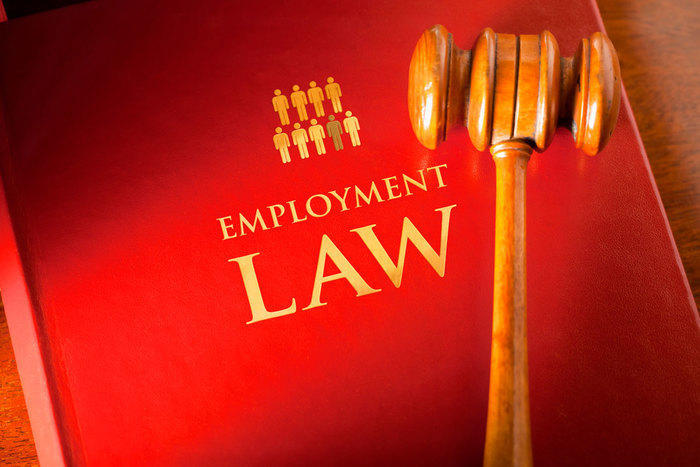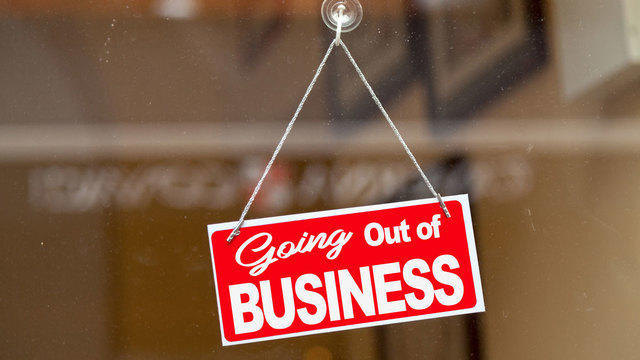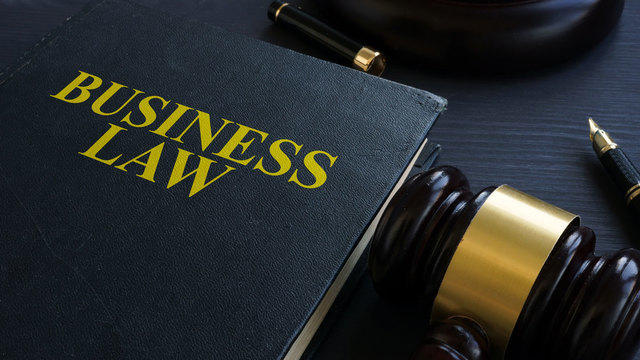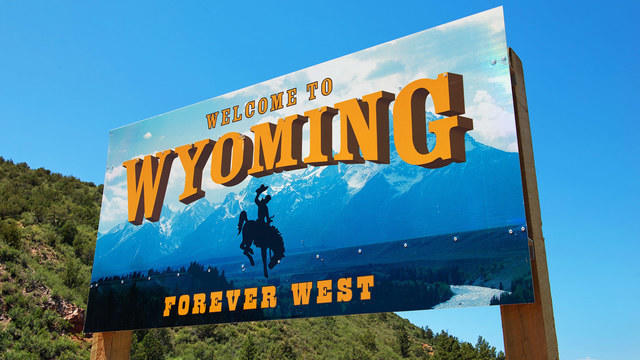If you're thinking of practicing law, there are several options out there. Working as an employment lawyer could present varied opportunities for you. Labor law can be fascinating to study. You also have the opportunity to represent clients on both sides of the table.
Let's take a closer look at the kind of work you might be asked to do.
What Is Labor Law?
These laws are designed to smooth relationships between employees and employers. Contrary to popular belief, labor law is designed to protect both parties. It clarifies the rights and responsibilities of the employer to ensure that employees get a fair shake.
On the other side of the equation, it also clarifies the rights and responsibilities of the employee.
In the United States, these laws specifically govern how both parties should behave in general and when unions get involved. The laws in this country also govern whether or not employees are allowed to unionize and bargain collectively.
Where Do We Get Our Labor Laws From?
Working a century ago was a very different prospect than it is today. Back then, the power was solely in the employer's corner. If they decided that you had to work seven days a week, then that was the end of it. If you didn't agree, they'd be able to fire you quite easily.
It worked for the employers but not for the employees. Over time, people worked on finding a more equable solution. Restrictions in terms of the number of hours worked, payment provisions, and so on, started to be introduced.
Over time, lawmakers wanted to shift the balance of power to make things a little fairer. Those in support of labor laws believe that the implementation of these laws prevents the exploitation of workers. They also believe that the introduction of unionization is a positive experience for both parties.
In the past, joining a union was not necessarily an option for most. You might have been fired for joining up or starting a union. Nowadays, the law recognizes that the First Amendment entrenches the rights of the individual to join a union of their choice.
So, today, you shouldn't be targeted for joining a union.
Unions Are Controversial
Historically, employees in the States are reluctant to unionize. Lawmakers in the earliest days of our country's history were opposed to unionization. As a result, up until the twentieth century, the courts would typically rule in favor of the employer.
As a result, unionization was not much use to employees in the earliest days of our country. This began to change in the twentieth century. It was only in the last hundred years or so that trade unions started to be recognized.
It wasn't long before the 1914 Clayton Act and the 1938 Fair Labor Standards Act started to protect the workers as well. Under these two acts, employees were given the right to organize themselves. These laws also established the minimum wage laws at the federal level.
Interestingly enough, according to the Washington Post, only 10% of workers in the States in 2013 were members of a union. In that, America is lagging behind the rest of the world. It is an interesting phenomenon.
In other countries in the world, the opposite is usually true. Most of the workers are unionized. That's not necessarily a good thing either, though. In a country like Sweden, for example, the unions work well. The unions work with employers.
In a country like South Africa, on the other hand, the unions rule with an iron fist. They're known for making unrealistic demands, calling strikes, and taking militant action. That works for the employees, but it leaves employers in an unenviable position.
What's the Union Process Here in the United States?
If employees feel the need, they can vote on unionization. They'll require a majority to form the union in the first place. If most of the employees vote to join a union, the employer is obliged to negotiate with the union.
The National Labor Relations Board entrenches this right. This Board ensures that both parties conduct the negotiations in good faith. Say, for example, that the employer is offering a 5% increase, and the employees want 10%, the Board will encourage them to meet in the middle.
It should be noted that the Board is not empowered to force either of the parties to agree.
The union members will typically elect delegates to represent them. These will usually be your shop stewards, and possibly even the leadership of the union. The representatives may also be allowed to select their leadership. It just depends on what the by-laws of the union set out.
Union leaders are required by law to use the funds entrusted to them fairly and honestly. The 1959 Labor-Management Reporting and Disclosure Act lays out the responsibilities of union leaders. Under this Act, those found guilty of embezzlement can be fined or even imprisoned.
To be legally recognized, the union has to submit their findings to the Secretary of Labor. Unions will also usually post a copy of the by-laws online. In terms of the Act mentioned above, all members have the following rights:
- To vote in an election
- To attend and speak at union meetings
- To vote on whether or not fees should be increased
The power of a union is that it can take action. Unions can call for a strike. They can also negotiate on behalf of their members in the following cases:
- Wage increases
- Layoffs
- What constitutes just cause
- What procedures to follow when disputes are registered
Why Are We Focusing on Unions Here?
There are many aspects of labor law. As an employment lawyer, you will need to deal with many different cases. That said, when a union becomes involved, the case can get a lot more complicated. The unions have their own rules in place when it comes to disputes.
These rules are there to protect members but also to prevent scurrilous complaints. As an employment lawyer, you will need a thorough understanding of these rules. You will need to be able to advise both your commercial and individual clients accordingly.
What's the National Labor Relations Board?
The National Labor Relations Board was formed following the 1935 National Labor Relations Act. The purpose was to ensure that union negotiations and voting are protected. The Board is empowered to act as a mediator or to act when a company has violated the Act.
When a company has contravened the regulations, the Board is allowed to prosecute or to sanction the company.
Understanding Which Laws Will Apply
Most of the labor laws in the US have been enacted at the federal level. Every state is allowed to have their own set of laws as well. As long as these are not in direct contravention of federal laws, they'll be applicable.
As a result, the employment lawyer must have a thorough understanding of:
- State Law
- Federal Law
- Common Law
- Union Rules, where applicable
Labor law can become confusing and complicated as a result. For example, there's nothing in the federal laws that bans at-will employment. State laws may reinforce the employer's rights in terms of at-will employment.
As a result, lawyers practicing in this field need a strong understanding of the law and precedents set.
Litigation of These Cases Can Be Interesting
One thing that labor law should never be is boring. Expect a lot of arbitration and negotiations. That's going to form a greater part of your workload than court cases. That's not to say that you won't ever have to deal with a court of law, though.
As a result, employment lawyers need to have strong negotiation and public speaking skills. You will need to be well-versed in civil procedure, and court processes as well.
Labor Laws Are a Small Part of Employment Law
There are a bunch of other statutes that cover other aspects of the employment contract. These include:
- Providing safety standards to protect the employees
- Prohibiting discrimination in terms of sex, race, age, color, disability, and country of origin
- Basic conditions of employment
As a lawyer, you will need to understand these laws as well.
There are Several Areas That You Can Specialize In Lobbying
Here's a bit of history for you. The first union in the United States formed in 1834. The idea was that employees should only have to work ten hours a day. Since then, conditions for the employee have improved.
That said, if you compare our labor laws to those in other first-world countries, they're lagging. There has been some progress in terms of shifting the balance of power solely from the employer. There's still a lot that needs to be done, though.
If you want to be a beacon for social change, perhaps you could become a lobbyist. In this role, you will play an active role in the legislation that is drafted. You might even be able to affect real change over time.
You might lobby on behalf of worker's rights or the rights of corporations. There's plenty of work in this field.
Work for the Unions
You could also opt to work on behalf of a union for lobbying, or during contract negotiation. This work could see you helping to renegotiate better working conditions or an increase in salary. You might also be asked to represent workers in a hearing or arbitration.
Some unions hire in-house counsel. If that doesn't suit you, you could always join a firm, or start a practice yourself, specializing in employment law.
Work for Corporations
Many of the larger firms will hire in-house counsel to assist with labor matters. In this capacity, you may be required to write corporate labor policies. You might also be required to draft employment contracts.
If there are disputes with the workforce, you might be expected to mediate. You might also be required to act if the company has been fined or sued in terms of their labor practices.
Employment lawyers can choose to act in an advisory capacity before staff is hired or laid off. You can advise companies of the pros and cons of actions they plan to take in terms of their staff.
Work for the National Labor Relations Board
If you have a firm understanding of labor laws, you might choose to work for the LLRB. This Board only swings into action when unionization takes place. They will also act if the companies are contravening union regulations.
Expect to spend a fair amount of time in arbitration here. You will need to be a skilled negotiator with a great deal of tact to perform this role.
Finally, the NLRB will also mete out punishment when found guilty of violating the union laws. As a representative, you may be called to check the merits of the case, or to decide on an appropriate punishment.
Work for Individual Clients
This can be rewarding, both emotionally and financially. Here you might be expected to:
- Vet employment contracts
- Argue cases where discrimination has been at play. This could be because someone didn't receive a job or promotion thanks to discrimination. It could also be because they were fired for the same reason.
- Argue cases where there are unfair working conditions
- Argue cases where someone has been unfairly fired
Why Would You Want to Become an Employment Lawyer?
There are a few scenarios that might entice someone to enter this field. If you were to ask ten employment lawyers why they chose this field, you'd probably get ten different answers. Here we'll go through the main ones.
It is Interesting
Let's be honest here, who wants to spend their days studying tax codes or looking for relevant deductions. The work for an employment lawyer can be a lot more interesting. Not every case will be exciting, but there should be a variety.
It is also a field that changes regularly. As a result, it can be interesting to keep up to date with those changes. It'll also be interesting to see what happens in ten or twenty years from now. The law does change slowly, but labor law is special. It is a much more dynamic area of the law.
It is a Specialist Field
As an employment lawyer, you should always be able to find work. As a specialist field, it is something that is always in demand. It is hard work, but it usually pays well. Being more specialized, you also don't have to keep track of the full range of statutes and laws in the United States.
It Can Be Emotionally Rewarding
It is always nice to know that you're standing up for the little guy. As an employment lawyer, you get the chance to do that. It could be through lobbying, representing the union, or representing individuals. There are a lot of ways to help change the lives of employees for the better.
You could also make a difference by representing companies. Not all companies mistreat their employees. You can help to guide companies toward the fairer treatment of their workers. You can assist them too, as it can boost productivity.
So, whatever side of the table you're on, you can make a difference.
You Could Make a Lot of Money
A lot of self-help literature revolves around following your bliss. It is excellent advice, but not always practical. You need to make a living, and you've got student loans to pay off. Labor law is difficult to navigate. As a result, you can charge a premium for your services.
Besides, what's wrong with wanting to make some money doing what you love?
And, we should note, that in today's society, it is almost standard form to litigate if you feel that you can make money out of it. That means that many corporate entities will be subjected to unwarranted lawsuits. Squashing frivolous lawsuits can also be a lofty goal.
We know that there is some bias against larger companies in these suits. In some instances, the settlements awarded are far higher than should be the case. What people don't understand is that this hurts our economy and can destroy a company.
When you're talking about hundreds or thousands of jobs, that's also important. You're helping the workers protect their livelihood in these cases. That's noble as well.
Final Notes
In America, you might not hear about employment regulations all the time. But if you think about it, they're pivotal to our society. They affect just about every American of working age. The changes made here impact all of us directly or indirectly.
They have changed the way that we do business as well. You can choose to hold companies responsible for their misdeeds or opt to take a more mercenary route. There's a lot of choice in this field.
If you have a desire to change our country for the better, this is a great place to start. Can you think of another aspect of the law that impacts so many lives?












